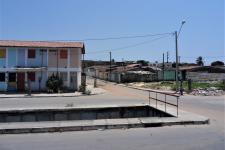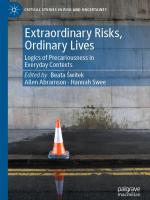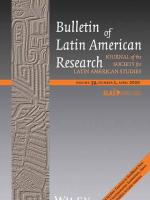‘Knowing how to walk’

Homicide rates in Brazil are much higher than in many places of armed conflicts around the world. Violence in ‘peacetime Brazil’ takes its toll on daily life, transforming social relations and modifying modes of existence such as to make the endurance of violence part and parcel of ordinary, everyday living.
In a new edited volume on risk that interrogates how risk and risk categorizations are related to individual agency and community resilience, this chapter explores practices of endurance under conditions that are best described as violent-ordinary. It does so among residents in a peripheral area of the city of Recife. The area started to undergo state-led redevelopment in the mid-2000s that in unanticipated ways forged new spaces of violence.
The chapter analyses how residents navigate the new and shifting spaces of danger, which, as residents explain, requires ‘knowing how to walk’. It argues that the sensory and quotidian practices of knowing how to walk should not be understood as residents’ attempts of seeking security, but as a way of pragmatically enduring pervasive insecurity. The analysis bridges theory on risk-taking as a state of exception with risk-taking as a mundane practice that can be routinised and normalised. The chapter is written by senior researcher Marie Kolling and is entitled ‘Knowing How to Walk’: Risk, Violence and Practices of Endurance in Urban Brazil.
DIIS Experts



